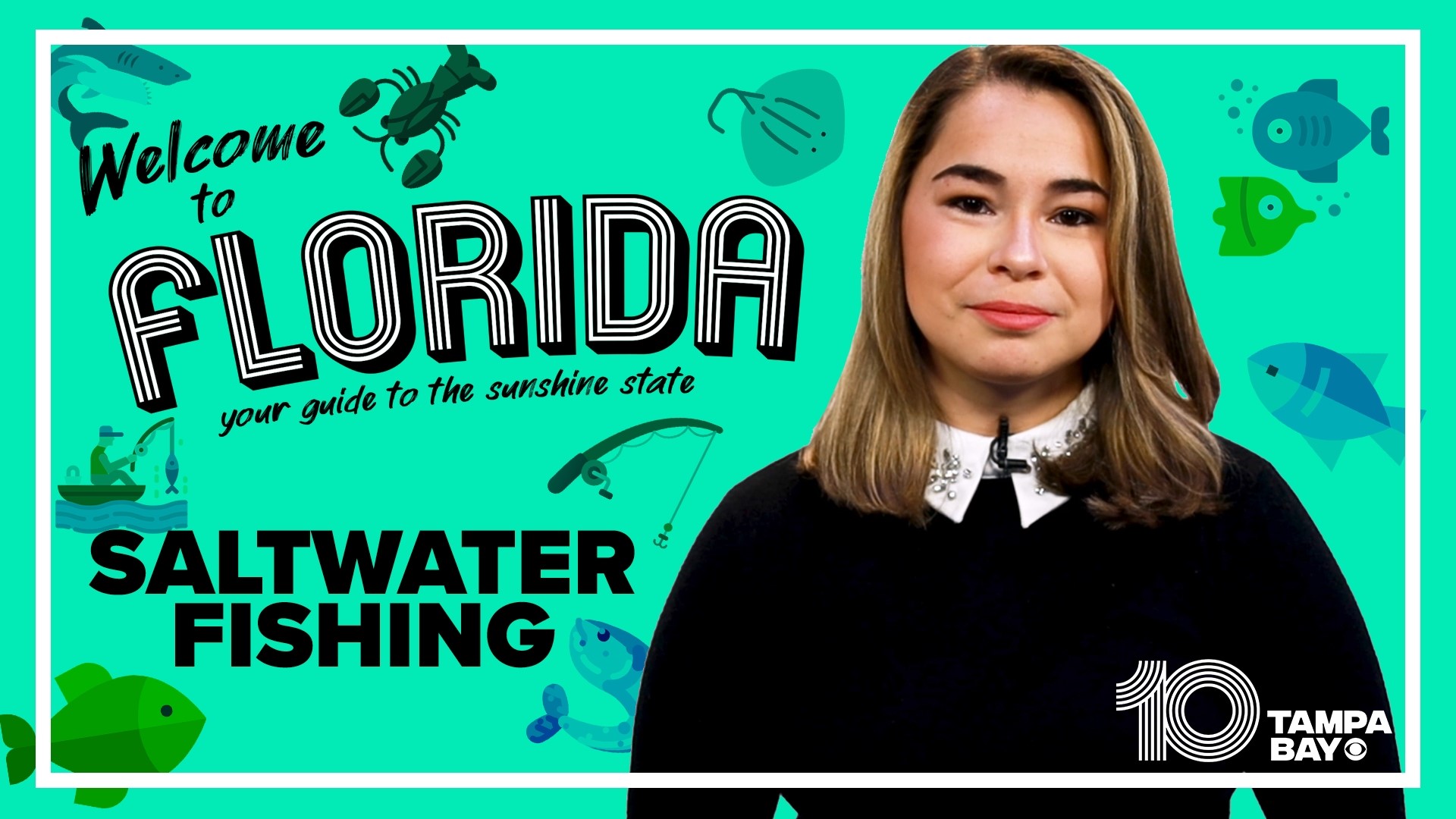TAMPA, Fla. — Whether you’re looking to catch snapper, sharks, or even reef fish, Florida’s salt waters have it all.
With plenty of fish to catch, there are plenty of rules you’ll need to know about.
To start, you’ll want to know what kind of fishing you want to do. While there is a general saltwater fishing license, Florida gets specific on certain catches like tarpon or lobsters.
But, let’s say you want to do some good ol’ fashioned catch and release, whether that be from a boat or the shore.
You’ll first need a saltwater fishing license. You can purchase them online, over the phone, or at a county tax collector’s office. If you’re a resident, it’ll run you $17 for one year, or $79 for five years. You can also add on special permits for spiny lobsters, or even fishing for reef fish.
When it comes to what you can catch in Florida, the list goes on and on and on.
In the Tampa Bay area, some of the most common fish you’ll see are Red Snapper, Grouper, Tarpon, Sheepshead, and a few others. Head further into the gulf and you’ll run into all kinds of sharks, Goliath Grouper, Wahoo, Mahi Mahi, and Sailfish to name a few.
If you plan to keep what you catch, you will want to be familiar with the limits on how many fish you can keep. The limits will vary by species.
For example, the Gulf Grouper has a bag limit of four fish per harvester, while Atlantic Grouper is limited to three fish per harvester. The Atlantic Grouper regulations also include golden and blueline tilefish.
In general, you will want to make sure you know your harvest limit, the minimum size needed to keep the fish, and if it’s the right season to harvest.
There are also many different ways to harvest fish. If you want something more adventurous than a rod and reel, you can use different types of nets, or even grab a spear. However, where and what you can spearfish is pretty limited.
You can’t spearfish within 100 yards of any public space, whether that be a beach, pier, or somewhere else. You also can’t spear lobster, certain types of large fish like the Goliath Grouper, stingrays, and sharks.
The Florida Fish and Wildlife Conservation Commission recommends only taking fish you plan to use, like for eating. In short, you shouldn’t spear a fish just for fun…unless it’s a lionfish. But, we’ll talk about that in a minute.
There is though, one group of marine life that you shouldn’t eat, but you can harvest them. We’re talking about aquarium species.
If you’re into fishing near reefs, whether they’re natural or artificial, you can find all sorts of colorful fish species like parrotfish and tangs. If you choose to take these animals, you are required to keep them alive.
Along with these beautiful fish, you can also take certain corals as long as you keep them alive. One type you can harvest is Zoanthids. Of course, there are limits on how many polyps you can take, but, you should know how to identify corals because there are plenty of types you can’t take from the ocean.
There is though, one type of fish that is open season year-round, and Florida doesn’t care how you kill them. In fact, they encourage you to kill them.
They can eat pretty much anything that will fit in their mouths, they have no natural predators, and they have venomous spines. We’re talking about the lionfish, an invasive species in the area.
If you see a lionfish, be careful of its spines, but feel free to kill it. They are responsible for damaging coral reefs and decimating fish populations. They also reproduce extremely fast, making them even more of a problem.
Florida actually holds an annual lionfish challenge that runs from May to Labor Day. In 2021, across nearly 500 participants, more than 21,000 lionfish were killed. The winner actually caught more than 1,600 lionfish!
Lastly, when it comes to fishing, the FWC asks that you be responsible and mindful of the environment. That includes safely removing hooks, keeping your fishing line out of the ocean, and respecting fish when releasing them. Also, don’t forget to have fun while discovering Florida’s marine life.

